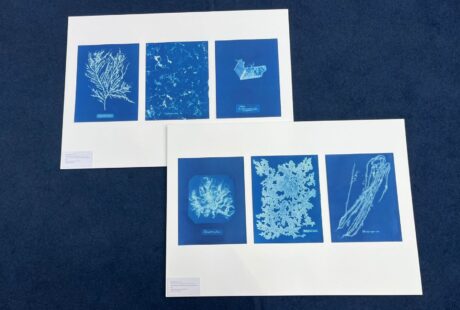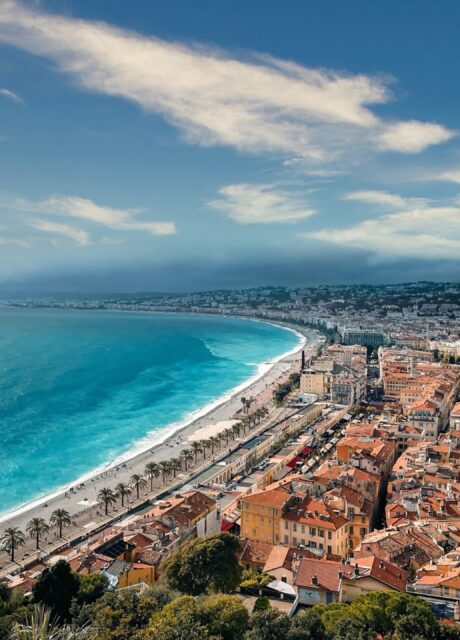Brussels, 23 April 2024
Today [23 April], the European Union’s efforts to slash microplastic pollution finally moved forward, as the European Parliament adopted its position on the Proposal for a Regulation aimed at preventing pellet losses to reduce microplastic pollution. This positive vote comes at a time when plastics are in focus on the international stage, as global plastic treaty negotiations resume, and just after Earth Day’s plastic focus on Monday, 22 April.
Members of the European Parliament (MEPs) met in Strasbourg to approve the proposal, which is urgently needed to reduce the risk of pellet spills and hold plastic producers, transporters, converters and recyclers and all other actors involved accountable for pellet leaks across the plastic supply chain.
The new regulation includes binding minimum requirements for all carriers and operators, with an expanded scope that includes maritime shipping. On average, 1,566 cargo containers are lost at sea each year, making shipping a major cause of pellet spills globally. MEPs missed the opportunity to tighten the regulation by choosing to exempt businesses that handle less than 1,000 tonnes of pellets a year from mandatory certification, audits and staff training. Still, the text is a significant improvement from the European Commission’s initial voluntary prevention measures as well as any prior industry-led voluntary initiatives.
Last winter’s pellet spill on the Galician coast showed firsthand how poor pellet transportation at sea can have catastrophic consequences. This, combined with mounting research linking microplastic contamination to human health risks, and a petition supported by over 90,000 Europeans, activated parliamentarians who voted 538 to 32 in favour of adoption of binding rules, seizing a last opportunity to protect the planet and people from harmful and toxic pellet pollution.
Frédérique Mongodin, Senior Marine Litter Policy Officer at Seas At Risk said:
“This is a long-awaited, hard-fought win for planet and ocean biodiversity, even with lingering exemptions. For far too long, marine ecosystems and wildlife have suffered the consequences of industry negligence and a lack of EU regulation. We call on EU countries to match MEPs in ambition so that the next European mandate can keep momentum up and agree to binding awareness and control measures for all industry players.”
Amy Youngman, Legal and Policy Specialist at the Environmental Investigation Agency, said:
“The EU’s leadership to implement strong supply chain governance on this harmful source of plastic pollution is a welcome step toward achieving microplastic reduction targets. Regrettably, the loophole in the Parliament proposal allowing operators to justify their way out of minimum prevention requirements weakens an otherwise robust proposal. As negotiators work on the global plastic treaty this week, we call on Parliament’s footsteps and seek global solutions to effectively prevent pellet loss – without any loopholes.”
Lucie Padovani, Marine Litter Lobbying Officer at Surfrider Foundation Europe, said:
“The profound impact and scale of plastic pellet pollution across the EU is abundantly clear. From the catastrophic container losses in Galicia to the persistent contamination of sites like Ecaussinnes (Belgium) and Tarragona (Spain), EU citizens and local communities are currently bearing the heavy toll of this pollution. It was thus long overdue for the European Parliament to take action with what we can consider a partial win: yes, clear concessions were made to part of the plastic industry, but MEPs found political will to set binding preventive measures and hold polluters accountable.”
This week’s plenary is the very last of the current Parliament’s mandate before June’s European elections. Negotiations on the pellet loss regulation between the European Council, Commission and Parliament will kick-off after the elections, where it will be crucial to keep the present momentum for microplastic and pellet pollution.
Correction: A previous version of this release incorrectly stated that businesses that handle less than 1,000 tonnes are exempt from certain rules. Business than handle less than 1,000 tonnes of pellets a year are exempt from these rules.
Notes to the Editor:
- Plastic production pellets, around five millimetres in size, are the building blocks of all larger plastics and constitute the third largest source of microplastic pollution in the EU. These pellets are known to accumulate especially in the aquatic and marine environment, where they have significant negative impacts on wildlife and ecosystems.
- Plastic pellet pollution occurs across all stages of the supply chain in the EU (Plastic Giants report).
- Over the past ten days, Seas At Risk and Rethink Plastic mobilised people in the EU to seek and share firsthand evidence with decision-makers by going out to the field and hunting for plastic pellets around local beaches, rivers or industrial parks.
- It is estimated that as many as 184,290 tonnes of pellets are lost in Europe every year. (Impact assessment report from the European Commission).
- The exponential expansion of the production of raw plastic materials since 2005 has resulted in increased waste generation and over 170 trillion plastic particles in the world’s oceans. (TINY PLASTIC, BIG PROBLEM. THE CASE FOR PREVENTING PELLET POLLUTION.)
- More than 20 NGOs and organisations called on MEPs to strengthen the proposal by including maritime transport and other measures (Open letter)
ENDS
Posted on: 23 April 2024



